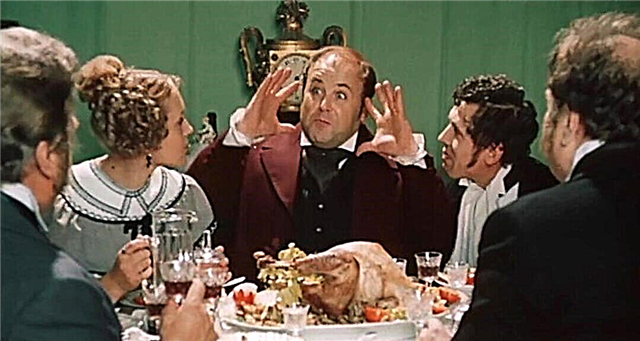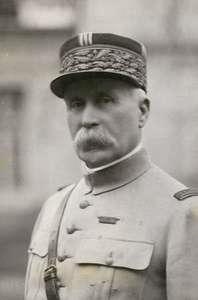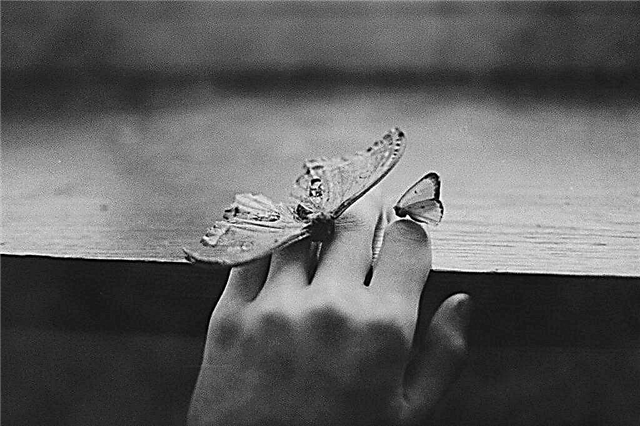I
A young man, not over twenty years old, without a hat, slightly drunk, wandered into the bar for a beer. Two people are talking at a nearby table, a male, almost boyish voice and a woman's voice, pectoral, maternal, are heard. The young man is too lazy to turn his head in their direction, he imagines that this is a mother and son. We are talking about money, a woman needs it - loving, worried. The young man had just died mother, before that he had buried his father. He would love to take care of his mother, because his income in South Africa is constantly growing. In addition, he receives income from his father's Dutch inheritance, which he reliably placed. Here in Paris, he has a tightly packed wallet, he is ready to share with this woman. Maybe then she would want to live with him, he would not have been in the way of a mother’s affection for some woman now. And you can kill yourself and leave her your money. Everything is so simple, only it is not clear where the idea of suicide came from. The young man begins to insert his phrases in the conversation of the couple, it seems to him that their voices and destinies are “intertwined”. He remembers his name - Andreas - and asks to call him A. Then he falls asleep for a moment, and when he wakes up, the couple has already disappeared. A. wants to pay the waiter for them, but everything has already been paid.
II
Taking for example a hero from the middle class, one can demonstrate the unity and universality of world processes. The hero lives in a provincial German town. In 1913, the hero serves as the junior teacher of the gymnasium, teaches mathematics and physics. As a person “constructed from mediocre material”, he does not have thoughts and philosophical questions. It is completely determined by its environment. His name is insignificant, you can call him Tsakharias. Has he ever thought about something that goes beyond mathematical problems? Of course, about women, for example. The time comes for the “erotic shock”. By chance, outside the house, he encounters the daughter of his landlady, next to whom he quietly lived for several years. It turns out that he and the Philippines love each other. Soon it comes to the “highest proof of love”, and after that to jealousy, distrust, suffering, torment. Both decide to commit suicide, the Philippines shoots him in the heart, then at his temple, and their blood “mixes”.
Such a path - from "squalor to the divine" - is not for mediocre natures. Another course of events is more natural and logical, when the couple finally comes to the mother, exhausted by expectation, and Tsakharias kneels to receive the blessing.
III
Just arrived A. examines the station square of the city, having the shape of a triangle. There is something enticing, magical in it, and he wants to become a resident here.
A. rents a room in the house of Baroness V., which is constrained by means. In the courtyard of 1923, after the war lost by Germany, inflation was rampant. A., a South African diamond maker, always has money. The Baroness lives with her daughter Hildegard and an old servant, the husband of the Baroness died. immediately understands that family relationships are very complex. Hildegard demonstrates his dissatisfaction with the appearance of the male tenant, but obeys the will of his mother. could have found another refuge for himself, but, apparently, fate itself brought him here. He notices that all three women are alike. In this “triangle” the baroness represents the “mother type”, and in the faces of the maidservants Zerlina and Hildegard there is something monastic, some kind of “timelessness”. Having come down to a conversation with the tenant, Hildegard on the very first evening informs him that her task is to look after her mother and keep the world in the house, the world established by her father. concludes that this is a strange girl, tough, full of "unsatisfied desires."
IV
Once he was a master in drawing instruments, had a wife, they were expecting a child. During childbirth, both the wife and the child died. An aging widower took a newborn girl from the shelter, called her Melitt. The girl graduated from high school and now works in the laundry room. The old father becomes a wandering beekeeper. Wandering through the fields with a song, he admires the “great creation of the creator,” and teaches people how to work with bees. Over the years, he approaches the “nature of being,” the knowledge of life and death. The old man returns home for a while and reluctantly, fearing that the oddities of his fate might “distort the life line” of a young inexperienced creature.
V
A. loves to live in comfort. Money is given to him easily, now he is buying up houses and land for devalued marks. He enjoys giving money. He does not like to make decisions, fate itself decides well for him, and he obeys her, without losing, however, vigilance, although with a fair amount of laziness.
One Sunday morning, Zerlina reveals to him the old family secrets. The Baroness gave birth to Hildegard not from the Baron, but from a friend of the von Jun family. Nobody knew that the maid had guessed everything, gloated and acted in her own interests. At that time, Zerlina was a cute and “appetizing” girl from the village. After an unsuccessful attempt to seduce the ascetic baron, the judge, she quickly manages to seduce von Yoon, tearing him from another lover. The latter suddenly died in the so-called Hunting Lodge. Von Yoon was arrested on suspicion of poisoning, but was acquitted at a court led by a baron, after which he left the country forever. Before the court, Zerlina sent the baron letters stolen by her to the baroness and her lover, but this did not affect the objectivity of the judge's decision. The Baron soon died - from a broken heart, according to Zerlina. Secretly from the Baroness, the maid brought up Hildegard in her own way, in “retribution for guilt” - the guilt of her daughter, in whom the blood of the “lustful murderers” flowed, and the guilt of her mother. Hildegard grew up in an effort to imitate the one whom she considered her father — the baron, “but without his holiness,” Zerlina resents. She, spying on everyone, knows that Hildegard often stands idle by the next guest’s room at night, and only the thought of a “holy” father prevents her from opening the door. The Baroness became a captive of both women, who hated her in her soul.
The story of Zerlina somewhat distracts A. from an afternoon nap. Falling asleep, he pities the baroness and himself left without a mother, he would like to be "his own son."
VI
On a crowded street, A. notices a strange, ridiculous house sticking out like a “broken tooth”. right there he goes around his gateways, porches, courtyards, stairs, floors. He is full of impatience and is waiting for something, for example, a garden or landscape view opening from a window. It is as if bewitched and is in an unsafe labyrinth, but not a soul around. Suddenly he almost bumps into a girl with a bucket in his hands. She lives in this house with her grandfather and works in the laundry room in the attic. Andreas introduces herself to her. He wants to see the garden, the existence of which he learns from Melitta. He does not succeed, and, disappointed, he asks Melitt to show him another exit onto the street. After the following long walks, A. finds himself in a leather shop, from where he finally gets out onto the street with a piece of purchased leather. The skin is good, but he is still disappointed.
VII
Tsakharias joined the Social Democratic Party, after which he quickly got promoted and wants to become the director of the gymnasium. He is married and has three obedient children.
At this time, meetings were held throughout Germany in protest against Einstein's theory of relativity. At one meeting, he opposes this theory, although not too sharply - after all, even in the party’s administration there are adherents of Einstein. Leaving the meeting, Tsaharias confronts a young man in his wardrobe looking for his hat. The latter invites Tsakharias to the cellar, where he treats him to expensive Burgundy. Tsakharias is not satisfied with the way of thinking of a young man who calls himself Dutch and believes that the Germans brought a lot of suffering to himself and to the whole of Europe. After the first bottle, Tsacharias delivers a speech to the glory of the German nation, "not tolerating hypocrisy." Therefore, the Germans do not like the "know-it-all" Jews. The Germans are the nation of the "Infinite", that is, death, while other nations are mired in the "Ultimate", in trade. The Germans have a difficult cross - the duties of "mentors of mankind."
Another speech follows after the second bottle: in a state of easy intoxication it is more reasonable to go to a prostitute, and not to his wife, so as not to conceive a fourth child, which is not affordable. But prostitutes can meet with high school students. The Germans no longer need the word “love”, because it is “mating” that brings us closer to the Infinite. A fourth speech is delivered behind a fourth bottle, and a fourth is made on the way home, about the need for “planned freedom.” takes Tsakharias to the door of his house, where the Philippine’s wife disgusted the “two bastards”. A. expelled by her leaves, noticing how the Philippines bashes her husband, enthusiastically accepting beatings and muttering love confessions. comes home and falls asleep, not wanting to puzzle over the fate of the German Naii.
VIII
For the first time in her life, Melitta receives a gift from a young man. This is a beautiful leather handbag, and in it is a letter from A. with a request to see you. Melitta does not know how to write an answer, because "from heart to pen is such a long way", especially for a little laundress. She decides to go to A. and puts on a Sunday dress. Zerlin opens it, which quickly pokes everything out and prepares Melitt for A.'s return, as they prepare the bride for the wedding night. Zerlina puts a girl in a Hildegard nightgown and puts A. to bed. Here Melitta spends two nights.
IX
A. talks with the Baroness about the moral principles of the younger generation. According to the baroness, her daughter considers A. an immoral person, the only question is whether it is praise or censure. With the tenderness of his son, A. invites the Baroness to visit the Hunter's Lodge that he bought.
Dinner A. at the station restaurant. Sitting in an old hall, “three-dimensional”, like everything German, A. indulges in a new kind of memories - in “multidimensionality”, and he himself is surprised that he thinks not of Melitte, but of Hildegard. At this moment, among the "plebeian noise" appears Hildegard herself, arrogant and beautiful. She accuses A. of playing the life of his mother, which, having bought the Hunter's Lodge, became a toy in the hands of Zerlina. From the maidservant, she already knows everything about Melitt and hides her fury from A.
The next night, Hildegard comes into A.'s room and demands that he take it by force. When astounded A. does not succeed, she maliciously declares to him that she forever deprived him of “male power”.
In the morning, A. learns from the newspaper that Melitta is no longer alive. Hildegard admits that she came to Melitta and told her that A. was indifferent to the little washerwoman. After her departure, the girl jumped out of the Window. perceives this as a murder. Hildegard cynically reassures him, because there is still a lot of murder and blood ahead, and he will accept them as he accepted the war. Moreover, the death of Melitta makes his life easier. Now everyone is preparing to move to the Hunter's Lodge, because they no longer face the appearance of Melitta. Everyone cheerfully celebrates Christmas in it.
X
For almost ten years A. has been living in the Hunter's Lodge with Baroness and Zerlina. At forty-five years old, he was pretty fat due to the efforts of Zerlina, who more than doubled her weight. But the maid stubbornly wears ragged old clothes, and the one that A. gives her folds up. takes care of the Baroness, as a son, and this is increasingly becoming the meaning of his life. Infrequent visits to Hildegard are already taking on the character of an unwanted invasion. gradually forgets about the past, it is unbelievable that he once loved women, one committed suicide because of him, but her name is already ready to slip out of her memory. In these "foul weekdays" you only need to consider the possibility of a sudden take-off of political idiots like Hitler so as not to lose money. His main successor, he draws up the Baroness, is going to allocate substantial sums to charitable organizations, especially in Holland. He is not worried about the future, because in 1933 the National Socialists lost their voices. likes to repeat that the world needs to be ignored and slowly “chew on everyday life”.
One day A. hears singing coming from the forest. Singing disturbs him. The last three years are no longer up to singing; Hitler nevertheless seized power, the danger of war is ripening, financial affairs need to be settled. An old man of powerful physique appears, blind, but confident and calm. suddenly realizes that this is Melitta’s grandfather, and the pain from the reminder arises in him. Both begin to analyze A.'s guilt and innocence, to trace the whole life history of this, in essence, kind person. Whatever happens in the world: war, the Russian revolution and Russian camps, Hitler's rise to power, A. made money. Moreover, he always preferred to be a "son" rather than a "father" and in the end he chose the role of "fat baby" for himself. finds his fault in the absolute, "cave" indifference, the result of which becomes indifference to the suffering of his neighbor. The old man knows that the transitional generation is destined to solve problems, A. is sure that this generation is paralyzed by the immensity of the task. He himself hoped to avoid responsibility for his "brutality", which threatens the whole world and each individually. pleads guilty and ready for reckoning. Grandfather Melitta understands, approves and accepts his willingness, first addressing him by name - Andreas. The old man leaves. Following him, in a “natural” way for him, A. leaves: from the “monstrous three-dimensional reality” to “immeasurable non-existence”, with a gun in his hand,
Having never learned the whole truth, left without A., the Baroness dies of grief, with the clear assistance of Zerlina. Now the former servant girl dresses richly and gets a maid.
Xi
The young woman, still young, goes to church for mass. Towards her a stranger with glasses, and for some reason the young lady wants to go to the other side of the street. Nevertheless, she passes by him in a "shell of icy indifference", like a real lady, "almost a saint." Then it seems to her that this elderly man, who could have looked like a communist, if Hitler had not destroyed them all, is following her. She enters the church, feeling the back of his head the weight of his gaze. Then slides into the courtyard in front of the square, where no one is. She looks around - "violence is being canceled," at least for this day. In the soul of the young lady rises some mixture of regret and gloating. The chorale sounds, the young lady enters the church again, opens the Psalter - "indeed holy."

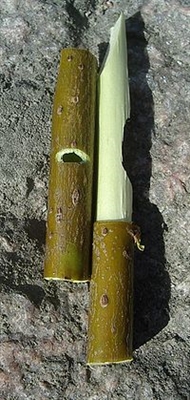

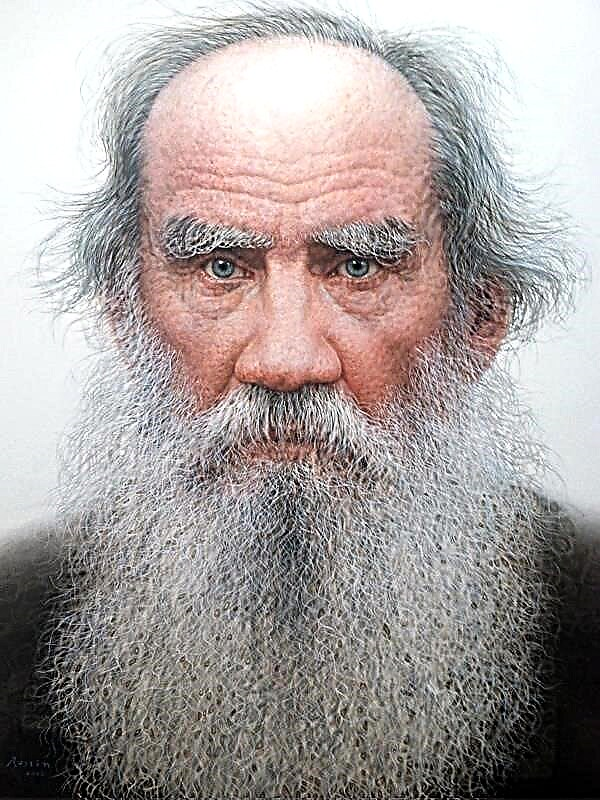
 Family antiquary
Family antiquary

